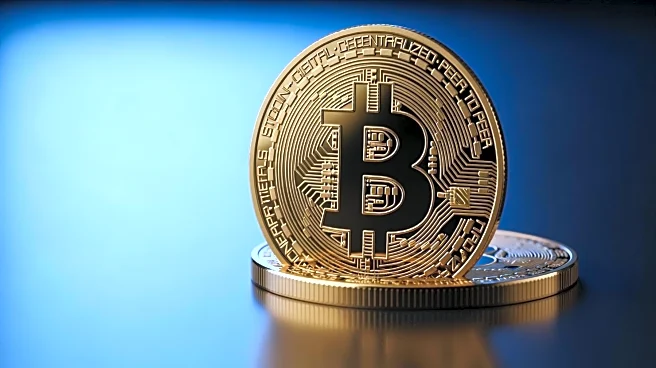What's Happening?
Syria has agreed to join the US-led international coalition to combat the Islamic State group, marking a significant shift in US foreign policy in the Middle East. This development follows a meeting between
President Donald Trump and Syrian President Ahmed al-Sharaa at the White House. The US Treasury Department, along with the departments of state and commerce, will announce new measures to lift economic restrictions on Syria and provide compliance clarity for investors. Syria will become the 90th country to join the coalition, aimed at eliminating remaining elements of the Islamic State and stemming the flow of foreign militants to the Middle East. Diplomatic relations between Syria and the US have been suspended since 2012, but Syria will now be allowed to re-open its embassy in Washington.
Why It's Important?
Syria's inclusion in the US-led coalition against the Islamic State represents a major shift in Middle Eastern geopolitics and US foreign policy. This move could potentially stabilize the region by reducing the influence of militant groups and fostering cooperation between Syria and the US. The lifting of economic sanctions and the suspension of the Caesar Act could pave the way for economic recovery and foreign investment in Syria. However, the decision to include Syria in the coalition has raised concerns due to President al-Sharaa's controversial past, including his leadership of a group previously designated as a terrorist organization by the US.
What's Next?
The US administration will monitor the new Syrian government's actions, including steps toward normalizing ties with Israel and addressing foreign terrorists and militant groups operating in the country. The re-opening of Syria's embassy in Washington could lead to improved diplomatic relations and further cooperation between the two nations. However, the situation remains complex, with ongoing violence between different factions within Syria and concerns about human rights violations.
Beyond the Headlines
The decision to include Syria in the coalition highlights the complexities of international diplomacy and the challenges of balancing geopolitical interests with ethical considerations. President al-Sharaa's rebranding from a former jihadist to a political leader underscores the fluid nature of political alliances and the potential for significant shifts in international relations. The move also raises questions about the long-term implications for regional stability and the role of the US in Middle Eastern politics.









